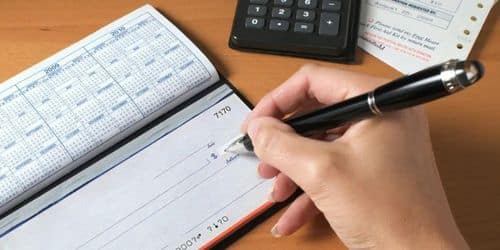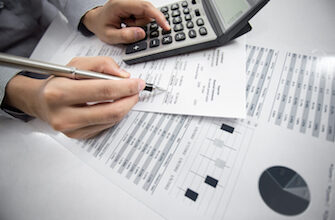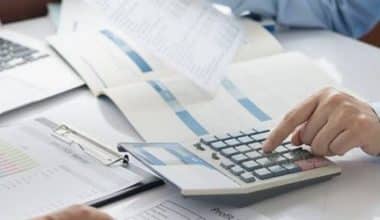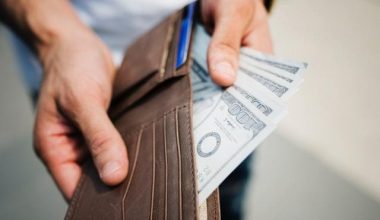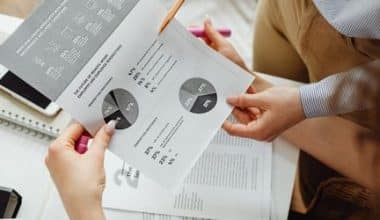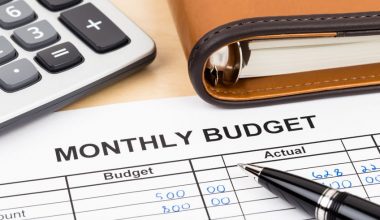If a check bounces, no money is transferred. It can have serious consequences if the individual who was supposed to be paid doesn’t get their money. This isn’t always a malicious plot. Yes, obviously, mishaps do occur, and we are all fallible. A check writer may experience check bounces if they make purchases before checking their bank balance and discover they don’t have enough money to cover the check. Additional charges could emerge. Bounced checks, whether due to inexperience or fraud, require immediate attention in order to avoid further fees. in this article, we will be looking at what happens if a check bounces at Walmart, at a deposit, or to the IRS.
What Happens if a Check Bounces?
A bounced check is one that cannot be executed because it was either written incorrectly or the account to which it was attached did not have enough funds. Whether you are the issuing or receiving party, dealing with a bounced check can be difficult.
When Your Written Check Fails
Your bank can impose an overdraft or nonsufficient funds fee if you wrote a check that bounced. Additionally, if the bounced check makes your payment overdue, the business you were trying to pay may charge you a late fee. Non-payment fees may send your account to collections.
What Happens if I Deposit a Check That Bounces?
Under any circumstances, it is not a good idea to deposit a bogus cheque. However, a number of criteria, such as whether you were the victim of check fraud or willfully deposited a phony check, will determine how severe the repercussions are for you.
Even unintentionally, depositing a bogus check can have expensive repercussions.
- You might be liable for paying back the check’s full amount. You might be required to reimburse the bank for the full amount of the bogus check that you cashed or put into your account, depending on bank regulations and state laws.
- Overdraft fees may apply. If you spend the fake check’s value before the bank discovers it, your account may overdraw. Overdraft fees average $30 per transaction.
- Your bank may decide to freeze or even terminate your account if you deposit a phony check. Review the deposit account agreement to find out under what circumstances your bank can close your account.
- Your credit may suffer. If your checking account is connected to your bills and a check bounces, you may miss payment deadlines. Credit bureaus utilize payment history to determine your credit score, so missed payments might reduce it.
- You might be required to pay late fines. Companies may impose late fees if you are unable to pay your bills due to insufficient funds after cashing a bad check. For instance, late fees on credit cards can be as much as $40.
- It could affect your credit. If you have a history of depositing bad checks, ChexSystems will note it in your file. Banks and credit unions may use this data to approve your checking account application. If your bank history is poor, they may deny your request.
What Do You Do if Someone’s Check Bounces?
You should be aware that client checks might not always be clear if you accept them as payment. It’s possible for a customer’s bank balance to fall short of the check’s value.
Options for when a customer’s check happens to bounces at Walmart or at the deposit or IRS:
1. Make a Bank Call
Contact the bank as soon as you learn that the check was returned unpaid. Even though the cheque once bounced, there may be enough money now. Request that the bank attempt depositing the check once more. Inquire with the bank about the possibility of an enforced collection if there is still insufficient money in the customer’s account. This implies that you will get the next payment the customer makes to their account. In this approach, the bank guarantees that it will transfer the funds from the client’s account.
2. Reach Out to the Client
By getting in touch with the consumer, you might be able to quickly remedy the issue. Call the client. You might be able to obtain their phone number from a check or customer account. Tell them what’s going on. Request cash or a credit card from the customer. Sending a letter to the consumer about a bounced check is an option if you are unable to contact the customer via phone. Give the customer a reason for your contact. Let them know how to pay and the deadline by which they must do so.
3. Obtain Federal Aid
Your neighborhood’s district attorney or police force might be able to assist you. They may offer services that can assist you in finding clients that issue faulty checks. These organizations may also be able to assist you in recovering money from bounced checks. If there is a possibility of prosecution, clients might be more eager to pay you.
4. Employ a Collection Company
You might be able to collect on bounced checks with the aid of a collection agency. If you want help getting the customer to pay, a collection agency can help, but they charge a fee. Hiring a collection agency will reduce the amount of time you have to spend on collecting payments. Additionally, there is a higher likelihood that you will get paid. However, because the agency does charge a fee, it could be preferable to hire one only after trying other options.
5. Go to Court
You can seek your money back in small claims court. Usually, this is only done after all other possibilities have been explored. Small claims court proceedings can be time- and money-consuming. For little sums, this option might not be worthwhile. However, there is a possibility that you will receive more than the sum of the original bounced check.
What Happens if a Check Bounces at Walmart?
One of these is possible:
- Walmart is changing its check acceptance policy and will no longer take checks in the same way. Walmart now treats checks you write like debit cards when processing them. The check is actually run via the system, and then it is given back to you. Since they never took the check, it cannot be returned. The purchase will be refused if there are insufficient funds, and you will either need to find another means of payment or depart without your items.
- In addition to whatever your bank charges for returned checks, you will be charged a $35 fee for the returned check. It will be redeposited, and you will be charged $35 once more if it does not clear. (My bank charges $35 for the returned check, plus $20 per day that the account is in the negative.) Since checks that happens to bounces are written to Walmart are now electronically converted, all checks clear at midnight automatically.
Do You Have to Pay for a Bounced Check?
Depositing a bounced check can result in:
- A bank may charge a nonsufficient funds fee of up to $35 as compensation for a failed check.
- Additionally, businesses may levy a bounced check fee, which normally ranges from $20 to $40.
- Other repercussions for bouncing a check include being written up or having your account closed by the bank.
Read Also, How To Enter A Bounced Check In QuickBooks- Expert Guide
How Long Do You Have to Pay a Bounced Check?
The amount of time you have to reimburse the bank for the bad check varies by state, and if you miss the deadline, you risk facing civil or criminal penalties.
#1. Bank-Allowed Time
If a check happens to bounces at Walmart, your bank might cover the cost. The check is not returned to the payee as a result of this courtesy. This helps you avoid any penalties that the business or person might charge you if you write them a bad check. When the bank writes a check for you, they give you time to reimburse them. The length of time given for payback is entirely up to the bank’s discretion and may range from a few weeks to three months. The bank will terminate your account if you don’t make the necessary payments within that time. The bank will still make an effort to collect the loan, though. In order to recover its funds, it will work with a collection company.
#2. Duration Permitted by the Payee
What happens when a check bounces at Walmart or the IRS? If the bank does not pay it for you, the check will be returned to the person or business to whom you made it payable. You may be given a specific period of time by that individual or company to settle the bounced check. Small businesses are considerably more likely than larger ones or chains to collaborate with you on paying off the bad check, especially if you are a regular customer. It will be your responsibility to get in touch with them and explain the situation, along with the precise date you want to cash the check.
#3. State Laws
The period of time that retailers can provide you to settle a bounced check is largely governed by state legislation. Learn the laws in your state, then follow them when it comes to paying the bad check. Laws often allow bad check writers to have two to three years to make up their debt.
#4. Timely Payment
The payee may file civil lawsuits against you at any time throughout the next two to three years, as well as criminal proceedings. Writing faulty checks is illegal and is regarded as fraud. Therefore, it is essential that you correct the situation right away by paying the check that happens to bounces at Walmart, at the deposit, or at the IRS. Don’t wait until you are accused before taking action.
What Happens if a Check Bounces Deposit?
Your bank may reverse the cash and impose fees if it credited your account for a check that was later returned unpaid due to insufficient funds. If you want to get paid back, you must go after the person who wrote the check as the payee.
Use caution when taking a check from someone you don’t know to help prevent this situation.
Who Gets Charged for a Bounced Check?
An NSF fee is assessed to the account holder when a bank decides to bounce a check because there are not enough funds in the account. The bank assesses an overdraft (OD) fee if it accepts the cheque but it results in a negative balance on the account. The bank may impose an extended overdraft fee if the account continues to be negative. The costs for returned checks and overdrafts vary between banks; as of 2020, the average overdraft fee was $33.47. This fee is typically applied to drafts of $24 or more, which can include cheques, electronic payments, and some debit card transactions.
What Happens if You Don’t Pay a Bounced Check?
Check bounce-related penalties might range from minor irritations to civil or criminal action. Here are a few possible results if your check bounces.
Fees for inadequate cash, overdrafts, and return checks are possible. Most banks charge them. Some banks charge $30 or more per overdraft for a consistently negative balance. They may bill you monthly. Learn your bank’s overdraft policies so you know your obligations for a bounced check or overdraft and how to prevent them.
Fallout on the personal or professional front may be present. It’s crucial to inform your recipient as quickly as possible of the problem because, depending on your relationship with them, you may encounter annoyance or resentment as a result of a bounced check.
ChexSystems is a reporting tool that banks use to inform one another about clients who may not be trustworthy with their accounts, such as a client who consistently avoids paying overdraft fees. A negative entry on your ChexSystems record can be removed, but it can remain there for up to five years.
Civil and criminal consequences are possible. Depending on where you live, how much the check was for, and if you willfully sent someone a faulty check, you may be accountable for federal or state criminal restrictions concerning bounced checks. Some could result in felony punishment. On a less serious note, if the payment issue is unresolved, the recipient of the rejected check can attempt to sue you in civil court.
How Many Times Will a Bank Try to Clear a Check?
In most cases, a bank will make two or three attempts to deposit the check if there isn’t enough money in your account.
Each time the check is delivered, fines for overdrafts or insufficient funds may be imposed. For information on your bank’s policy regarding overdrafts and the presentation of checks, review the deposit account agreement.
What Happens if a Check Bounces to the IRS?
A penalty of 2 percent of the check’s or other commercial payment instrument’s value is often assessed when the IRS receives a check or other commercial payment instrument for the purpose of paying taxes but it fails to clear the bank. However, if the check’s or another commercial payment instrument’s value is less than $1,250, the fine is $25 or the lesser of that amount or the value of the other commercial payment instrument. Therefore, the fine is $25 if the check or other commercial payment instrument has a value of between $25 and $1,250.
Conclusion
Avoiding writing or accepting checks in the first place is the best course of action when dealing with bounced checks. You can monitor your checking account with the use of budgeting tools to make sure you don’t incur overdraft penalties. Keep an eye on your credit score to ensure that none of your bounced checks have hurt your score if a bounced check has put you behind on payments. If you receive a faulty check, you can attempt to recover your money from the sender while simultaneously devising a strategy to prevent receiving bad checks in the future.
Checks that bounce do occur, but employing the proper financial instruments to stop them can help you rapidly repair any damage.
What Happens if a Check Bounces FAQs
What is the consequences of bouncing a check?
When a check bounces, the depositor’s bank may charge fines and limit banking services. Undeliverable checks may result in bad credit, merchant denial, and legal issues.
Will I get in trouble if a check bounces?
If the individual writing the bad check knows there isn’t enough money to pay it, or if they write multiple bad checks in a short period of time, then the check is probable criminal activity.
How many times will a bank try to clear a check?
When there isn’t enough money in your bank account, the bank will often try depositing the cheque two or three times. In any case, there are no regulations regarding the maximum number of resubmissions for a check, and no assurance that the check will be resubmitted at all.
Similar Posts
- OVERDRAFT PROTECTION: Definition & How Does It Work
- WHAT IS NSF FEE? Overview and Comprehensive Guide
- How do Money Orders Work? (+How to Buy with Debit Cards)
- OVERDRAFT FEES: What They are and How To Avoid Them?
- P AND L STATEMENT: Meaning, Examples and Management
